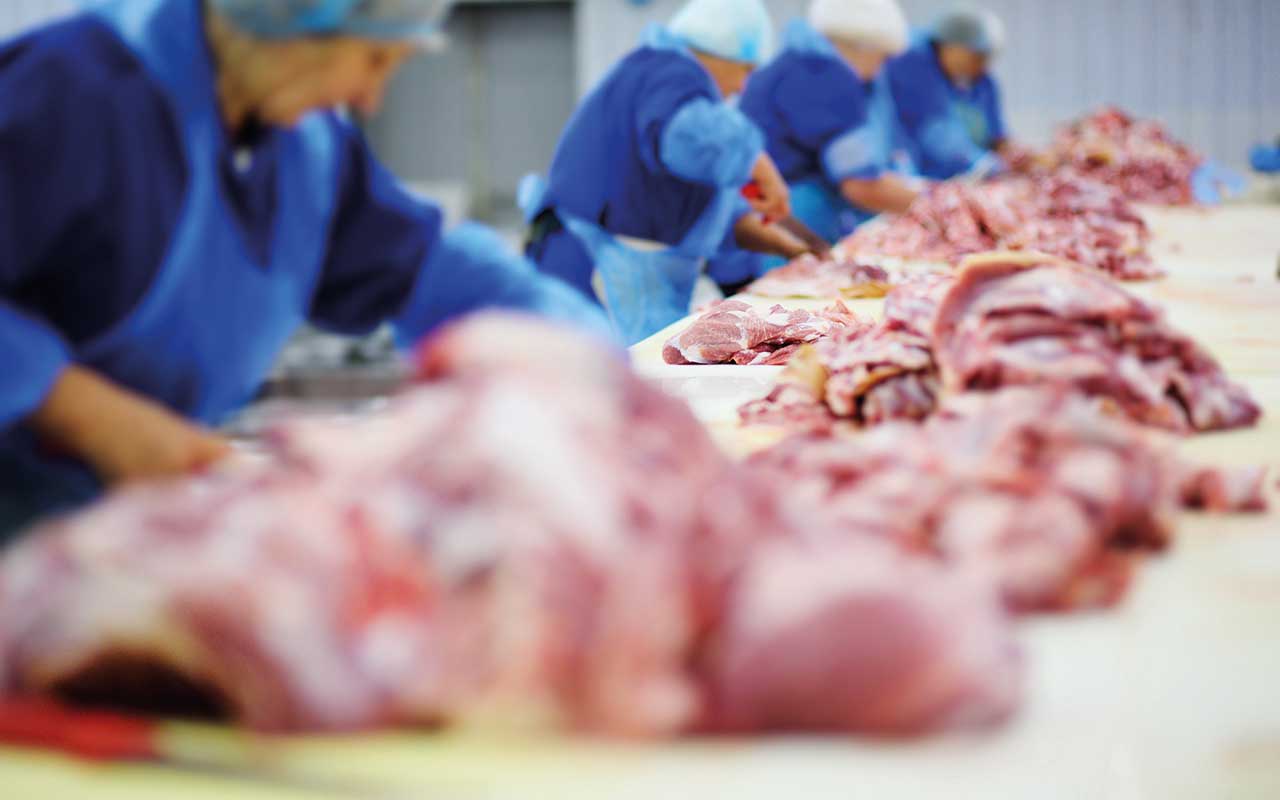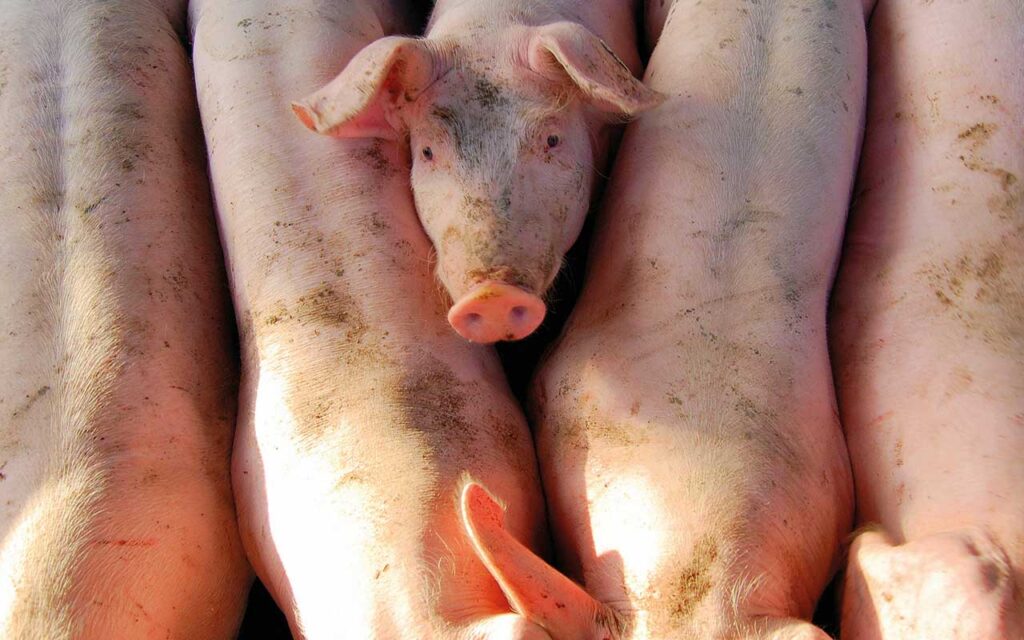From August 14, all new pig contracts will be governed by long-awaited new legislation intended to bring about a fairer supply chain.
And from the same date in 2026, all pig contracts, including existing ones, will need to be compliant with the Fair Dealing Obligations (Pigs) Regulations, which finally reached the statute book on May 21, after passing through the Houses of Commons and Lords, as expected, without amendments to the draft statutory instrument (SI).
If the final stages have been relatively straightforward, it has been a long road to this point. It started in the midst of the pig crisis in February 2022, when then farming minister Victoria Prentis announced an ‘immediate review of supply chain fairness in the pig sector’, following a crisis summit.
The legislation got close to reaching the statute book last summer before being halted in its tracks by the general election.
But to its credit amid all the disillusionment over other farm policy areas, the current government has, as promised, picked up the baton and got it over the line.
We are, of course, in a very different place to three years ago, following a sustained period of high prices and relatively low costs, while the supply chain, or at least parts of it, has started to take a longer-term perspective of its relations with producers. Lessons have been learned.
Nonetheless, the general verdict is that the new legislation sets out some important parameters that will protect producers, if and when needed, including a clearly defined dispute resolution procedure, while, crucially, retaining the necessary flexibility so as not to be overly onerous on either side.
That said, only time will tell how it plays out in practice. Therefore, a provision enabling the legislation to be reviewed and updated, if necessary, is key.

The main points
Written contracts: All new pig supply contracts from August 14 will need to be in writing by default, with clear terms on pricing, volume and dispute resolution.
There will be a 12-month transition period for existing agreements until August 14, 2026, after which all contracts will need to be compliant.
Pig purchase contracts must either be of fixed duration or evergreen – continuing until one of the parties terminates it. The regulation sets out details on the variation of terms for giving notice under contracts.
Any changes to terms must be agreed by both parties.
Pig prices: Contracts must use either a fixed or variable price, or a combination of both. The SI sets out in detail how these should be set.
The contract must set out the first day, the method and frequency with which purchasers will pay sellers for pigs.
According to industry analyst Mick Sloyan, the objective is to provide a structured framework within which businesses can operate, rather than seeking to be prescriptive about prices.
If fixed prices are included, there must be a procedure where they can be reviewed in the event of exceptional market conditions. Producers have the right to request a discussion with the processor and both parties have to agree to changing the price.
Variable pricing is more widely used in the industry and the legislation sets out measures that should ensure transparency in how prices are determined.
The producer can request that the processor provides a written explanation within seven days of how the price was determined and what factors were considered in determining the price.
“Crucially, the contract must include a third-party verification procedure, if requested by the producer. This allows for ‘business-sensitive data’ from the buyer to be assessed by an independent person,” Mr Sloyan wrote in the Weekly Tribune.
For example, if the processor reduced the ‘factory price’ in a contract, the producer could ask that the third-party verification procedure is actioned.
The independent person would then ask the processor to supply relevant evidence, in confidence, that supported their decision to reduce the price – for example, a fall in wholesale prices. They would then report back in accordance with the procedure agreed in the contract
Pig supplies: The contract must specify the quantity of pigs to be supplied in a given period, which can be as a minimum or maximum, and when. Where it states that the quantities can be varied, it must specify the process by which this is done, and the frequency.
The contract must include provision for remedies available to the purchaser when pig numbers fall below the minimum quantity specified.
However, there is not an equivalent requirement for remedies if the processor does not take the minimum quantity specified.
It must also specify how frequently the collections or deliveries will occur and set out remedies available to buyer and seller if the conditions are not met.
There is a requirement for contracts to contain force majeure clauses in relation to the collection or delivery of pigs, details of which must be set out.
Dispute resolution: The contracts must contain a dispute resolution procedure for when the seller makes a complaint to the buyer. The business purchaser must investigate and take all reasonable steps to resolve the complaint.
The SI also sets out how suppliers can refer unresolved disputes to the secretary of state. In June 2024, the government appointed an Agricultural Supply Chain Adjudicator (ASCA) to uphold fair dealings regulations across the sectors, with dairy already having similar regulations in place and the process under way for eggs and horticulture.
ASCA will provide a ‘formal, impartial route’ for dispute escalation when internal contract resolution mechanisms fail, and will be able to impose fines or compensation, investigate complaints and request evidence.
The SI also sets out the process for appeals.
Review: Importantly, there is a provision for the secretary of state to review these regulations and publish a report within five years, including an assessment of whether the provisions remain appropriate or need to be changed.
‘Major win’
Defra said the new legislation would deliver stronger relationships between buyers and producers, improving consistency, predictability and resilience throughout the supply chain.
Farming minister Daniel Zeichner said: “Pig farmers work incredibly hard to supply high-quality British food and it’s only right they can do so on clear, fair terms. These rules will give producers more confidence and help secure smoother, more constructive supply chain relationships. This is a major win for farmers, supported by industry.”
The FDO regulations have been developed following extensive consultation with the wider industry, with the NPA playing a prominent role.
NPA chief executive Lizzie Wilson said: “We are pleased to see this important piece of legislation has now received parliamentary approval and has hit the statute book. We believe it will add a much-needed further layer of protection for producers by ensuring buyers cannot renege on the details of agreements, as has happened too often in the past.”
At May’s Pigs Tomorrow conference, John Powell, Defra’s head of agriculture sectors team, set out the context. “Imbalances in the pig supply chain have existed for some time and this came to a head in the pig crisis of 2021 and 2022,” he said.
Outlining the details, he said the SI’s ‘substantive changes’ will ‘introduce transparency and certainty for producers’.
In a panel discussion, NPA chairman Rob Mutimer welcomed the legislation. He highlighted how the pig crisis exposed the ‘absolute mess’ pig contracts were in and acknowledged that, after a ‘very thorough process’, the legislation had ‘largely delivered what the industry asked for’.
He welcomed the flexibility in the SI, which means it shouldn’t affect how the market works, and the fact it is a ‘movable feast’, with Defra pledging to keep an eye on how it is working and make changes, if necessary.
“But this will really be stress-tested when we next have a problem with the industry. Yes, things have changed and moved forward, with cost-of-production-based long-term contracts, but it is still the pig industry, and it could well go belly up again,” he said.
United Pig Cooperative co-general manager Andy McGowan said he was not anticipating the regulation would create much change in terms of pricing and welcomed the presence of an independent arbiter for when things go ‘beyond reasonable variation of a contract’.
AHDB pork sector council chairman Glen Nimmo said the legislation was a ‘common-sense’ approach to imbalances in the supply chain.




